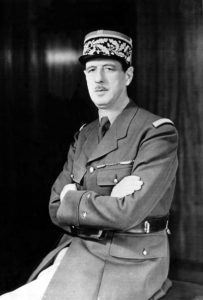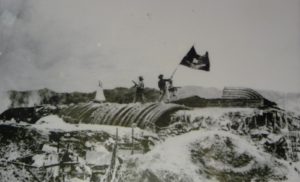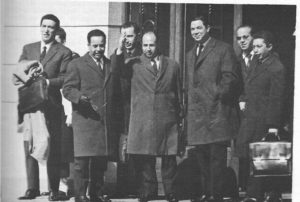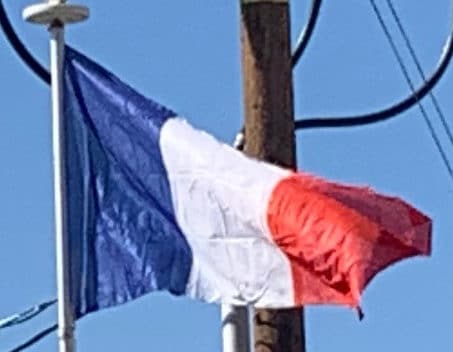
The GPRF laid the groundwork for a new constitutional order that resulted in the Fourth Republic, which saw spectacular economic growth (les Trente Glorieuses). France was one of the founding members of NATO (1949). France attempted to regain control of French Indochina but was defeated by the Viet Minh in 1954 at the climactic Battle of Dien Bien Phu. Only months later, France faced another anti-colonialist conflict in Algeria. The systematic torture and repression, as well as the extrajudicial killings that were perpetrated to keep control of Algeria, then considered as an integral part of France and home to over one million European settlers, wracked the country and nearly led to a coup and civil war.

In 1958, the weak and unstable Fourth Republic gave way to the Fifth Republic, which included a strengthened Presidency. In the latter role, Charles de Gaulle managed to keep the country together while taking steps to end the Algerian War. The war was concluded with the Évian Accords in 1962 that led to Algerian independence.

The Algerian independence came at a high price; the large toll on the Algerian population. It resulted in half million to a million deaths and over 2 million internally displaced Algerians. A vestige of the colonial empire are the French overseas departments and territories.
In the context of the Cold War, de Gaulle pursued a policy of “national independence” towards the Western and Eastern blocs. To this end, he withdrew from NATO’s military integrated command (while remaining in the NATO alliance itself), launched a nuclear development program, and made France the fourth nuclear power. He restored cordial Franco-German relations to create a European counterweight between the American and Soviet spheres of influence. However, he opposed any development of a supranational Europe, favouring a Europe of sovereign nations. In the wake of the series of worldwide protests of 1968, the revolt of May 1968 had an enormous social impact. In France, it is considered to be the watershed moment when a conservative moral ideal (religion, patriotism, respect for authority) shifted towards a more liberal moral ideal (secularism, individualism, sexual revolution). Although the revolt was a political failure (as the Gaullist party emerged even stronger than before) it announced a split between the French people and de Gaulle who resigned shortly after.

In the post-Gaullist era, France remained one of the most developed economies in the world, but faced several economic crises that resulted in high unemployment rates and increasing public debt. In the late 20th and early 21st centuries France has been at the forefront of the development of a supranational European Union, notably by signing the Maastricht Treaty (which created the European Union) in 1992, establishing the Eurozone in 1999, and signing the Lisbon Treaty in 2007. France has also gradually but fully reintegrated into NATO and has since participated in most NATO sponsored wars.
